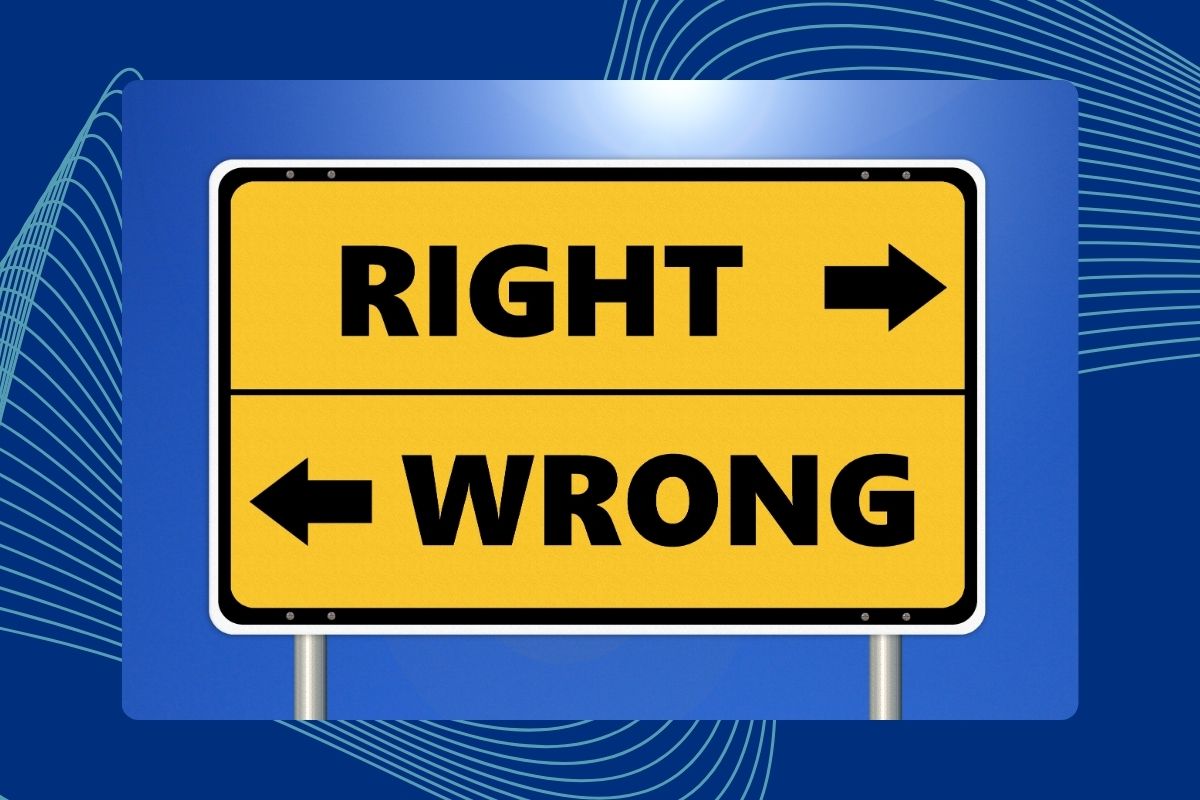Ethics in Applied Behavior Analysis (ABA) therapy are foundational and essential, not only for maintaining the integrity and effectiveness of therapeutic practices but also for protecting the welfare of clients. These ethical guidelines ensure that interventions are conducted in a respectful and responsible manner. At the forefront of delivering these ABA services are Board Certified Behavior Analysts (BCBAs), who bear the responsibility of developing and overseeing individualized behavior intervention plans. It is crucial that BCBAs adhere to the highest ethical standards to uphold the quality and efficacy of their practice.
Understanding Ethical Guidelines in ABA
BACB Ethics Code
The Behavior Analyst Certification Board (BACB) provides a comprehensive ethics code that outlines the professional and ethical responsibilities of behavior analysts. This code is designed to help practitioners navigate the complex landscape of clinical practice by setting forth standards for ethical conduct, responsibilities to clients, and guidelines for handling ethical dilemmas.
Principles of Ethical Conduct
Key ethical principles include maintaining confidentiality, obtaining informed consent, promoting beneficence (doing good), and non-maleficence (doing no harm). These principles guide BCBAs in conducting ethical practice across various situations and ensuring that their interventions promote the best interests of their clients while avoiding harm.
Importance of Continuous Education Units (CEUs)
Ongoing education in ethics is vital for BCBAs to stay updated with new laws, guidelines, and best practices. Continuous professional development ensures that practitioners can adapt to evolving ethical standards and remain competent in their ethical practices.
Common Ethical Dilemmas Faced by BCBAs
Dual Relationships
Navigating dual relationships carefully is crucial as they can impair professional judgment and lead to conflicts of interest. BCBAs must establish clear boundaries and avoid entering into multiple roles with a client or their family that could cloud professional objectivity or exploit the therapeutic relationship.
Confidentiality and Privacy
Maintaining client confidentiality is paramount in ABA therapy. BCBAs face challenges in ensuring privacy across various environments, such as schools or residential treatment facilities. It is their duty to safeguard personal information and only share it with proper consent and within ethical bounds.
Consent and Assent
Obtaining informed consent and assent involves explaining the nature, risks, and benefits of therapy in a manner that is understandable to clients and their guardians. This is particularly challenging with vulnerable populations or those with limited understanding. BCBAs must ensure that consent is informed, voluntary, and periodically revisited.
Autonomy and Dignity of the Client
BCBAs work to enhance the autonomy and dignity of their clients by involving them in decision-making processes and respecting their personal values and preferences. This involves advocating for the rights of clients and striving to make therapeutic interactions as respectful and empowering as possible.
Cultural Competence
Cultural competence requires BCBAs to understand and integrate their clients’ cultural, ethnic, and social backgrounds into their practice. This involves being aware of cultural biases and ensuring that treatment plans are culturally sensitive and appropriate.
Evidence-Based Practice
BCBAs must balance client needs with interventions that are supported by the best available research. This ethical consideration ensures that the therapies provided are not only effective but also scientifically justified and tailored to individual needs.
Strategies for Resolving Ethical Issues
Consultation
When facing ethical dilemmas, consulting with knowledgeable colleagues or supervisors is invaluable. This practice lets Board Certified Behavior Analysts (BCBAs) leverage the collective experience of their peers, uncovering new perspectives on the dilemma. Discussions with others who have faced similar issues can clarify ethical considerations and guide BCBAs towards appropriate resolutions that uphold professional standards. Additionally, this collaborative approach helps prevent biases in decision-making, leading to more objective and ethical outcomes.
Documentation
Accurate and thorough documentation is crucial in ABA therapy, serving as a key element of ethical practice. By maintaining detailed records of assessments, treatment plans, client interactions, and decisions, BCBAs ensure transparency. This documentation can be audited by clients, guardians, or regulators if necessary, and serves as a legal and ethical safeguard. It also supports consistent care and accountability, which are vital for building trust and maintaining integrity in therapeutic relationships.
Education
Ongoing education in ethical practices is essential for upholding high standards in ABA therapy. Regular training keeps BCBAs updated with the latest ethical guidelines and methods, preparing them to manage complex situations effectively. Such education fosters a culture of continual improvement and helps practitioners stay current with evolving ethical standards in healthcare. By keeping informed about recent developments and debates, BCBAs can navigate their professional responsibilities more adeptly and maintain their commitment to ethical excellence.
Communication
Effective communication is key to maintaining an ethical therapeutic environment. Clear, honest, and professional dialogue with clients and their families is essential for building trust, which is vital in any therapeutic relationship. BCBAs should make sure everyone is well-informed about the therapy process, including risks, benefits, and ethical considerations, to enable informed decisions about care. Open communication also promotes feedback and continuous conversations about the client’s comfort and satisfaction, helping to prevent and resolve potential ethical issues.
Promoting an Ethical Practice
Workplace Culture
Creating and maintaining an ethical workplace culture is crucial. It involves setting clear ethical standards, modeling those standards through leadership, and encouraging a consistent dialogue about ethics among all staff.
Regular Training
Implementing regular ethical training and workshops can reinforce the importance of ethical behavior and keep staff updated on best practices and new ethical guidelines. This continuous learning environment encourages staff to reflect on their practices and strive for ethical excellence.
Policy and Example
Strong policies that promote ethical practices and provide clear examples of ethical behavior guide BCBAs in their daily decisions and actions. These policies help create a framework within which ethical dilemmas can be addressed consistently and effectively.
Key Takeaways
Ethics are the backbone of effective ABA therapy. By continually engaging with ethical guidelines and resources, BCBAs can ensure they provide the highest standard of care. This commitment to ethical practice not only supports the well-being of clients but also elevates the field of behavior analysis.
FAQs
1. What constitutes a dual relationship in ABA therapy, and why is it considered unethical?
A dual relationship occurs when a behavior analyst engages in another significant relationship with a client, family member, or significant other outside of the therapeutic context. This can include relationships that are social, financial, or personal. Dual relationships are considered unethical because they can compromise the professional judgment of the therapist, lead to conflicts of interest, and potentially exploit the therapeutic relationship. The ethical guidelines stipulate that BCBAs should avoid such relationships to maintain objectivity and professionalism.
2. How do BCBAs ensure confidentiality and privacy during therapy sessions?
BCBAs ensure confidentiality and privacy by securely storing and handling all client information, whether it’s physical files or digital data. They discuss confidentiality openly with clients and their families, explaining what it entails and any circumstances under which it might be breached (e.g., legal requirements). Additionally, BCBAs ensure that discussions about client progress and treatments occur in private settings to prevent unauthorized information disclosure.
3. What are the ethical considerations when obtaining consent in ABA therapy?
Ethical considerations when obtaining consent include ensuring that the client or their guardian fully understands the nature of the therapy, including potential risks and benefits. Consent must be informed, voluntary, and competency-based, meaning the client or guardian is capable of understanding the information presented and making a decision. For ongoing therapies, BCBAs are also expected to obtain continuous consent, regularly checking that clients or guardians wish to proceed with the intervention plans.
4. What steps should a BCBA take when faced with an ethical dilemma?
When faced with an ethical dilemma, BCBAs should first consult the ethical guidelines provided by the Behavior Analyst Certification Board (BACB). If the dilemma persists, they should seek consultation from peers or supervisors to gain multiple perspectives. Documenting all decisions and actions taken in response to the dilemma is crucial for accountability. If needed, BCBAs may also use formal ethical decision-making models to systematically address the issue. In cases where guidelines and consultations do not provide a clear path forward, contacting the BACB or a professional ethics board for guidance is recommended.






